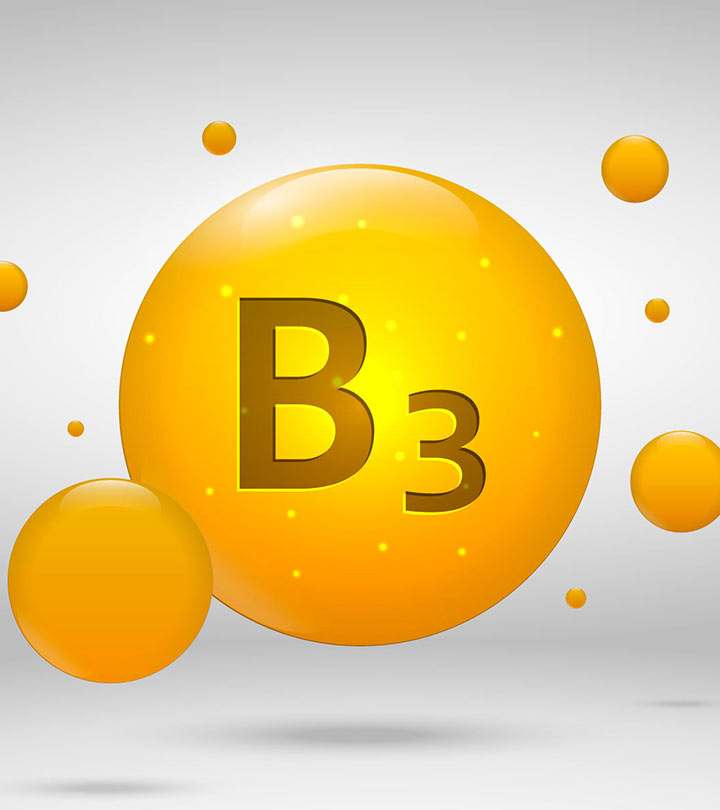Niacin has 14 proven benefits and can be taken as a supplement, with the recommended dosage varying depending on individual needs. Possible side effects include skin flushing, rapid heartbeat, itching, nausea, abdominal pain, diarrhea, gout, and liver issues.
However, the research on niacin is limited and insufficient for specific health concerns, such as heart disease and Alzheimer’s. Despite this, niacin can still be beneficial for lowering bad cholesterol and aiding in weight loss. It is essential to consult a healthcare provider for a specific dosage and monitor any potential side effects.
Introduction To Niacin
Discover the 14 proven benefits of niacin, including its dosage and potential side effects. This powerful nutrient can improve blood lipid profiles and aid in weight loss, making it a valuable addition to your daily health routine.
What is niacin?
Niacin, also known as vitamin B3, is essential for maintaining overall health. It is a water-soluble vitamin found naturally in various foods, such as peanuts, avocados, tuna, brown rice, mushrooms, and salmon. Niacin is also available in supplement form, which makes it easily accessible for those who may have a deficiency or require higher doses for specific health conditions.
How does niacin work?
Niacin works by converting it into coenzymes that are involved in various bodily processes. These coenzymes support energy production, DNA repair, and metabolic functions. Niacin also aids in producing certain hormones and neurotransmitters critical for maintaining a healthy nervous system.
Niacin Deficiency
Niacin deficiency is rare in developed countries, as it is found in many commonly consumed foods. However, certain factors, such as a poor diet, alcohol abuse, certain medications, and certain medical conditions, can lead to a deficiency. When the body lacks niacin, it can result in a condition called pellagra, characterized by symptoms such as digestive issues, skin rashes, weakness, and mental confusion. It is essential to address niacin deficiency promptly to prevent these symptoms from worsening and affecting overall health.
In the next section, we will explore the numerous proven benefits of niacin, including its effects on heart health, cholesterol levels, brain function, and more. We will also discuss the recommended dosage and potential side effects that individuals should be aware of when supplementing with niacin. Stay tuned to discover how niacin can optimize your health and well-being.

Health Benefits Of Niacin
Niacin, also known as vitamin B3, offers a range of health benefits that can contribute to your overall well-being. From lowering bad cholesterol to aiding in weight loss, the advantages of niacin are worth exploring.
Lowering Bad Cholesterol
Niacin has been shown to positively affect the lowering of harmful cholesterol levels. It helps increase good cholesterol levels while reducing toxic LDL cholesterol levels. This action can help improve heart health and reduce the risk of cardiovascular diseases.
Aiding In Weight Loss
Niacin can also aid in weight-loss efforts. It works by improving the metabolism of fats and carbohydrates, which can lead to increased energy expenditure and faster weight loss. Additionally, niacin regulates blood sugar levels, helping to prevent spikes and crashes that can contribute to weight gain.
Potential Benefits For Heart Disease And Alzheimer’s
Research suggests that niacin may have potential benefits for individuals with heart disease and Alzheimer’s. While more studies are needed to fully understand the extent of these benefits, niacin’s ability to improve blood lipid profiles and enhance clotting can contribute to better heart health. Furthermore, niacin’s role in promoting brain health and reducing oxidative stress may offer some protective effects against Alzheimer’s disease.
Incorporating niacin into your daily health routine can be as simple as adding niacin-rich foods like peanuts, avocados, tuna, brown rice, mushrooms, and salmon. However, it’s important to note that niacin supplements should only be taken under the guidance of a healthcare professional to ensure proper dosage and avoid potential side effects.
While niacin is generally safe for most individuals, it may cause side effects such as skin flushing, dizziness, rapid heartbeat, itching, nausea, abdominal pain, diarrhea, gout, and liver issues when taken in high doses. It’s crucial to consult with your healthcare provider before starting any new supplement or medication.
In summary, niacin offers a range of health benefits, including lowering bad cholesterol, aiding in weight loss, and potential benefits for heart disease and Alzheimer’s. Incorporating niacin-rich foods into your diet and consulting with a healthcare professional about supplementation can improve your overall health and well-being.
Dosage And Side Effects Of Niacin
When taking any supplement, it is essential to understand the recommended dosage and potential side effects. Niacin is no exception. Niacin, also known as vitamin B3, offers many health benefits, including improved heart health, enhanced brain function, and increased energy levels. However, taking niacin at the correct dosage is crucial to avoid adverse effects.
Recommended Dosage
According to the National Institutes of Health, niacin’s recommended daily allowance (RDA) varies depending on age, gender, and reproductive status. The RDA ranges from 14 to 16 milligrams for adults, while pregnant and breastfeeding women may require slightly higher doses. However, individuals with specific health conditions, such as high cholesterol or cardiovascular disease, might need higher doses under supervision. It is always best to consult a healthcare professional to determine the ideal dosage for your needs.
Possible Side Effects
While niacin is generally safe and well-tolerated, there are potential side effects that one should be aware of. Niacin supplementation’s most common side effect is a harmless but uncomfortable sensation called “niacin flush.” This temporary reaction causes redness, itching, and a warm sensation on the skin.
In some cases, high doses of niacin can lead to more severe side effects, such as dizziness, rapid heartbeat, nausea, vomiting, abdominal pain, diarrhea, gout, and liver problems. It is crucial to follow the recommended dosage and not exceed the tolerable upper intake level (UL) of 35 milligrams for adults, as excessive amounts of niacin can be harmful.
Tips To Reduce Niacin Side Effects
If you experience mild niacin flushing or other side effects, there are ways to reduce their intensity or prevent them altogether. Here are some helpful tips:
- Start with a lower dosage and gradually increase over time to allow your body to adjust.
- Take niacin with food to minimize digestive discomfort.
- Consider taking an extended-release formulation of niacin, which may reduce flushing.
- Drink plenty of water to stay hydrated and help alleviate side effects.
- Avoid hot beverages or alcohol, as they can exacerbate flushing.
- Speak to your healthcare provider about potential interactions with your medications.
By following these tips and guidelines, you can minimize the risk of experiencing niacin side effects while enjoying its numerous health benefits. However, it is essential to remember that individual responses to niacin can vary, and consulting a healthcare professional is always recommended.


Frequently Asked Questions On 14 Proven Benefits Of Niacin, Dosage, And Side Effects
What are the proven benefits of niacin?
Niacin has been proven to lower harmful cholesterol levels, lose weight, and improve blood lipid profiles. It also shows potential benefits for heart disease and Alzheimer’s disease, although more research is needed.
What are the possible side effects of niacin?
Some possible side effects of niacin include severe skin flushing combined with dizziness, rapid heartbeat, itching, nausea and vomiting, abdominal pain, diarrhea, gout, and liver damage. It is essential to consult with a healthcare provider before starting niacin supplementation.
How Does Niacin Work?
Niacin works by increasing the levels of good cholesterol (HDL) in the body, which helps lower harmful cholesterol levels (LDL). It also plays a role in improving blood lipid profiles and reducing the risk of cardiovascular disease.
What Is The Recommended Dosage Of Niacin?
The recommended dosage of niacin varies depending on the individual’s health condition and treatment goals. It is best to consult with a healthcare provider to determine the appropriate dosage for you.
Conclusion
Discover the numerous benefits of niacin and how it can improve your health and well-being. From lowering bad cholesterol to aiding in weight loss, niacin is a valuable supplement to incorporate into your daily routine. Although there are potential side effects, such as flushing and nausea, the
Start prioritizing your health today by considering the positive impact of niacin on your overall well-being.

